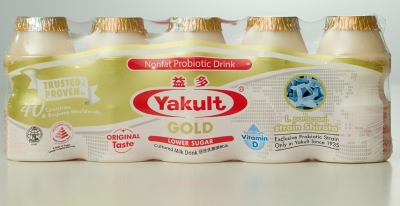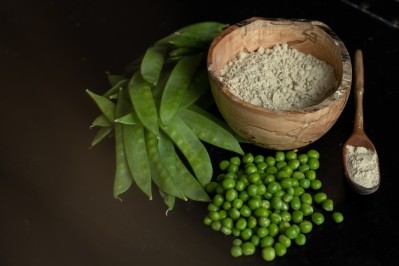Larger, longer studies required on gut-health supplements and depression

Based on available clinical trials, the review by authors from Singapore General Hospital said that probiotic supplementation had only modest effects on depressive symptoms and had limited short-term effects on the gut microbiota in patients with major depressive disorder (MDD).
They stated: “Most studies failed to find significant alterations in gut microbiota composition after four to eight weeks of probiotic intervention, with the caveat being the small sample size and short treatment duration of present studies.”
Probiotics and depressive disorders
More than 250 million people worldwide suffer from depression. In terms of years spent with a disability, MDD in particular is the world's most common cause of disability. It can be resistant to treatment, is significantly debilitating, and may lead to suicide in affected individuals.
There is a need for newer and more effective therapeutic approaches, which is highlighted by the fact that, despite the global prevalence, up to one-third of patients with MDD ineffectively or only partially respond to first-line treatments, such as antidepressant medications or psychotherapy.
Growing evidence points to a critical role of the gut microbiome in mental health. Research has highlighted the existence of a bidirectional communication pathway, with possibility that the gut microbiota in particular seems to be a potentially modifiable target for novel therapies, given that it is strongly influenced by foods and medications.
In previous studies, probiotics have been suggested as a potential treatment for depression. Some research suggests that probiotics may influence the gut–brain axis and that changes in the gut microbiome may be linked to mood disorders such as depression.
Although promising preclinical data for probiotics’ anti-depressive’ effects have been reported, previous clinical trials have concluded mixed effects.
Prior reviews on the subject also tend to place more emphasis on clinical effectiveness and less on the probiotics' underlying mechanisms of action and effects on the gut microbiota.
Systematic Review
The authors stated: “In an attempt to unravel the underlying mechanisms and generate hypotheses for future investigations, this review aimed to specifically examine the effects of probiotic supplementation on the gut microbiota in patients with MDD.”
Studies included in the review were clinical trials involving patients with depression, where defined probiotic intervention was recorded and there were documented changes in the gut microbiota.
A systematic literature search was conducted, using Medline, Embase, and Cochrane Library databases, and attempts were made to search grey literature using Google.
Seven clinical trials were found involving patients with MDD. However meta-analysis was not possible due to the few studies and varied data sources, the authors reported, and except for one open-label trial, the majority of trials had a low-to-moderate risk of bias, largely due to the effects of diet on gut microbiota which were not taken into account.
In the studies included in the review, alpha diversity was typically measured using the Shannon diversity index and beta diversity.
The review reported that, on average, after four to eight weeks of probiotic intervention, there were typically no significant changes in gut microbiota composition and only modest effects of probiotic supplementation on depressive symptoms. Additionally, there were no consistent effects on gut microbiota diversity.
In general, probiotic supplementation did not appear to significantly lessen depressive symptoms when compared to placebo, and the majority of studies were unable to detect appreciable changes in the composition of the gut microbiota.
The authors of the review said: “There are no reliable longer-term data and insufficient systematic reporting of adverse events. Clinical improvement may take longer for patients with MDD, and it may take the microbial host environment longer than eight weeks to significantly alter the microbiota. Additional longer-term and larger-scale studies are needed to advance this field.”
Mechanism of Action
Probiotics have been found to influence the production of dopamine, norepinephrine, and GABA neurotransmitters, as well as the regulation of host serotonin biosynthesis, which increases serotonin levels.
In a previous pilot study, probiotics were discovered to alter the gut microbiota's gene expression without causing compositional changes, with potential anti-inflammatory effects.
One trial discovered that after four weeks of probiotic supplementation, participants experienced significant reductions in depressive symptoms when accompanied by a relative abundance of specific bacteria; Desulfovibrio and Faecalibaculum.
However, the authors of the review stated: “The findings on the gut microbiota in patients with MDD have been inconsistent. This is further complicated by the fact that there is no consensus on the ‘ideal’ gut microbiota composition for optimal physical functioning and mental well-being.”
Previous subgroup analyses also suggested that not all probiotics are created equal, with findings that multi-strain probiotic products significantly reduced depressive symptoms when compared to single-strain probiotic products.
The authors of the new review conclude that specific mechanisms of action are still not fully understood.
Limitations
There were some limitations to the systematic review. Across the studies included, 16S rRNA sequencing method was commonly used, which the authors suggest may not be sensitive enough to detect the microbiota alterations induced by probiotic administration.
They also point out that as there were only five studies included in the review, it was difficult to draw any firm conclusions.
It was also noted that as it is known that males and females have distinct gender-specific differences in terms of host bacterial genera, the inclusion of studies that had predominantly female participants would give rise to gut microbiota variations.
Journal: Nutrients
https://www.mdpi.com/2072-6643/15/6/1351
“Effect of Probiotic Supplementation on Gut Microbiota in Patients with Major Depressive Disorders: A Systematic Review”
Authors: Qin Xiang Ng, Yu Liang Lim, Clyve Yu Leon Yaow, Wee Khoon Ng, Julian Thumboo, and Tau Ming Liew

















